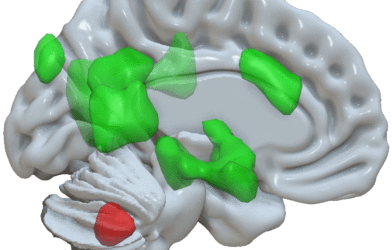The European starling, a versatile songbird known for its wide-ranging vocal abilities, has now showcased its remarkable problem-solving skills in a recent study published in Science. This research challenges the notion that only highly intelligent animals can possess complex vocal learning abilities, shedding light on a new facet of avian intelligence.
Complex vocal learners, which include humans, elephants, whales, seals, bats, songbirds, parrots, and hummingbirds, have the unique capacity to learn and retain a large number of sounds. To explore the link between vocal learning and cognitive abilities in songbirds, researchers led by Jean-Nicolas Audet from The Rockefeller University embarked on a three-year study involving 21 bird species.
After evaluating the vocal learning abilities of these birds, three standout species emerged: starlings, blue jays, and gray catbirds. These birds could not only mimic their own species but also imitate others—a pinnacle of vocal learning. The researchers then subjected 214 birds from 23 species to a battery of cognitive tests.
These tests assessed problem-solving skills by challenging the birds to open lids, pierce foil, or pull sticks to retrieve treats. Self-control was gauged by placing transparent barriers between the birds and their snacks, measuring how quickly they found an alternative route to their reward. Other tests assessed color-food associations and adaptability to changes in these associations.
The results revealed a strong correlation between problem-solving abilities and vocal learning skills. Starlings, blue jays, and catbirds, the most adept vocal learners, also excelled in problem-solving tasks. The more skilled a bird was at navigating obstacles to access its treat, the more complex its vocal learning abilities. However, no such correlation was found between other cognitive tests and vocal learning complexity.
Additionally, advanced vocal learners and proficient problem solvers had larger brains relative to their body size. This observation suggests a potential biological basis for these findings. The researchers now plan to investigate the specific brain regions responsible for problem solving in these birds.
Overall, this study suggests that vocal learning, problem solving, and brain size may have co-evolved as a means of enhancing biological fitness. These findings have led to the coining of the term “vocal learning cognitive complex” by Erich Jarvis, emphasizing the interconnectedness of these traits and their role in the evolution of complex behaviors.













